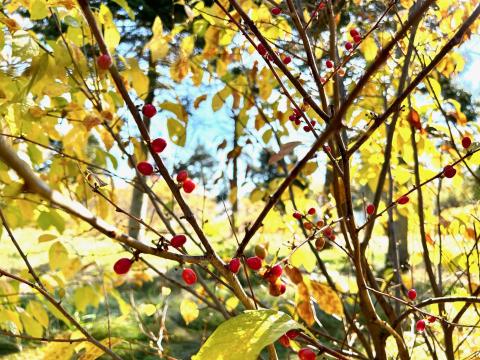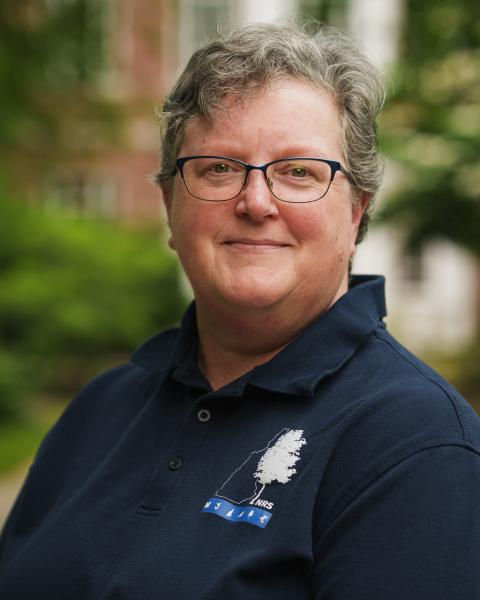The Ethics of Seed Collection

Spice berry bush. Photo by Rebecca Cowser.
We want to collect some seed, either for our own use, or to support the NH State Forest Nursery seedling program or a local Conservation Commission project. How do we as humans do that and behave ethically towards the plants that surround us and the wildlife that depend on them as food?
MANY, many opinions are out there, and each has its own merits. After much research and reflection, my short answer is only as much as you absolutely need. The shorter, more complex answer is, it depends. On a number of things, some of which are pretty straight forward, others more of a personal ethical choice:
What you are collecting – shouldn’t be any category of endangered, rare, or otherwise protected.
Where you are collecting it – there’s the legality of the where. Most public lands (e.g. city, county, state and national parks) require permits for collecting any plant material. That can include transport corridors and rights of way. Private property requires permission. Know what your local rules are before you head out with your collection bag. Bottom line, if it’s not your own property, you should at least be asking permission, and maybe asking for a permit.
Where also speaks to habitat, which we should respect. Stay on trails where possible, avoid trampling plants, avoiding sensitive habitats, being mindful of what we may bring into the habitat.
How much is there, and available, and who is sharing it? That includes wildlife and the plants themselves. How many plants make a stable population in the wild? Who depends on this plant to live? How susceptible is it to the whims of nature? Is there evidence of pests or disease?
Why are you collecting it? Are you looking for genetic diversity for a Seed Bank or creating more habitat for pollinators?
Some questions you can ask yourself when you go out there:
1. Is this a listed or a relatively common species?
2. Is this population large enough so that taking a few dozen seeds will likely not impact it?
3. Is this a species that I can adequately care for if the seed germinates?
4. Is this a plant that I simply can't acquire any other way?
5. If I collect a few seeds, will my actions be purely personal or is there a larger "good" associated with it?
For further reflection:
North American Native Plant Society
Northeast Wild Seed Collectors
Also, let me introduce you to the Eastern US Seed Zones Map which I find fascinating. Maybe you will too.
